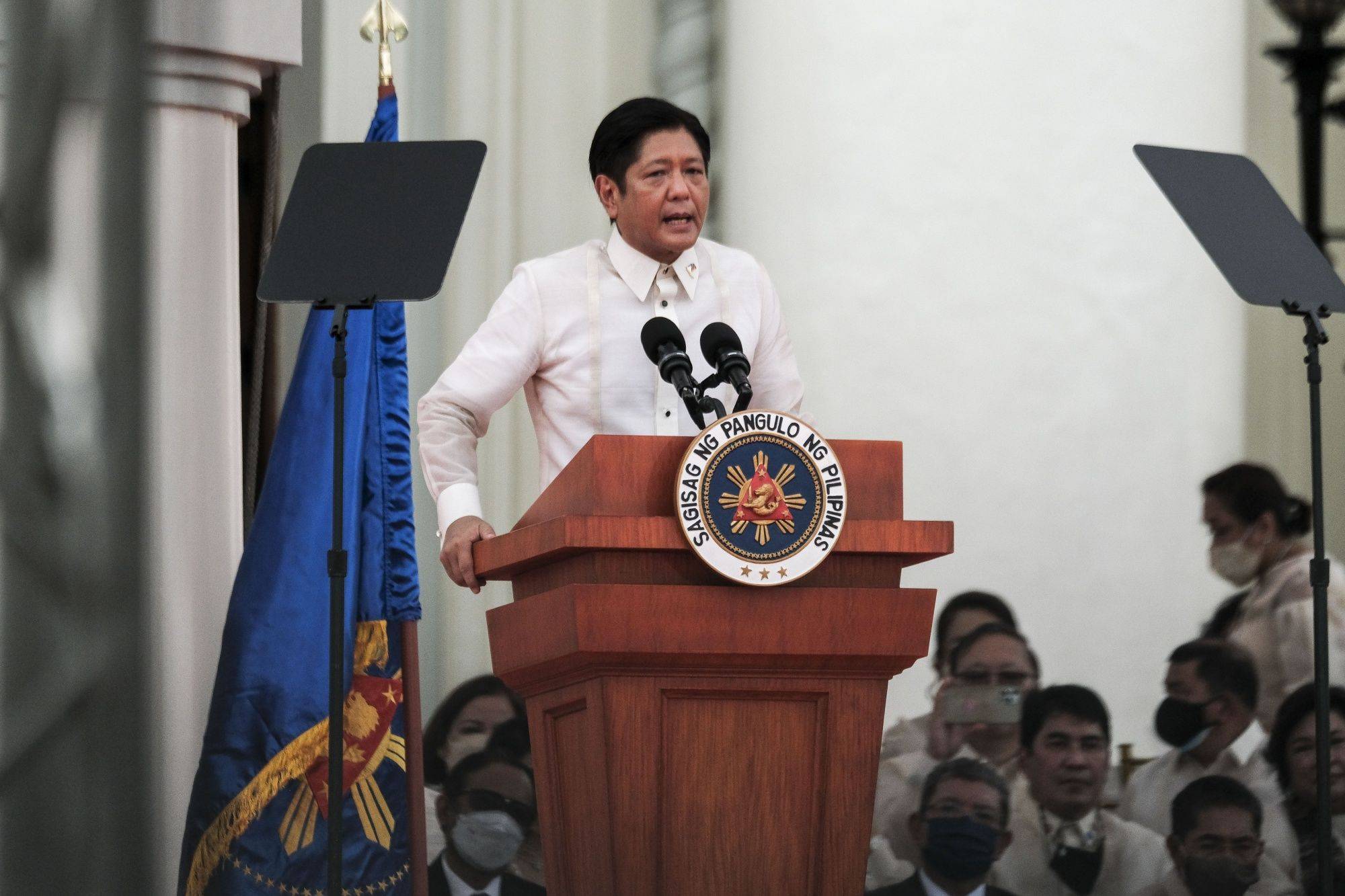After the initial euphoria from a landslide victory on promises of a building binge, more jobs, cheaper food and tax breaks, the Philippines’ new President Ferdinand Marcos Jr. is finding that his populist pledges are running into reality.
The government simply lacks the fiscal space to allow tax concessions, or spend big on building bridges, roads and ports after racking up debt to help cushion the impact of the pandemic. That’s forcing Marcos Jr., the only son of late dictator Ferdinand Marcos, to take a different path.
The first signals from his new administration are that populism can wait. He’s vetoed a proposal to create a special economic zone and a freeport covering San Miguel Corp.’s New Manila International Airport because it came at a cost to the government: tax revenue. It’s not just corporates for which Marcos Jr. is reassessing benefits. The 64-year-old leader recently tempered his campaign pledge to reduce the price of rice to 20 pesos ($0.36) a kilogram as an aspiration and walked back on his support for suspending oil excise tax.



















With your current subscription plan you can comment on stories. However, before writing your first comment, please create a display name in the Profile section of your subscriber account page.